BEV start-ups
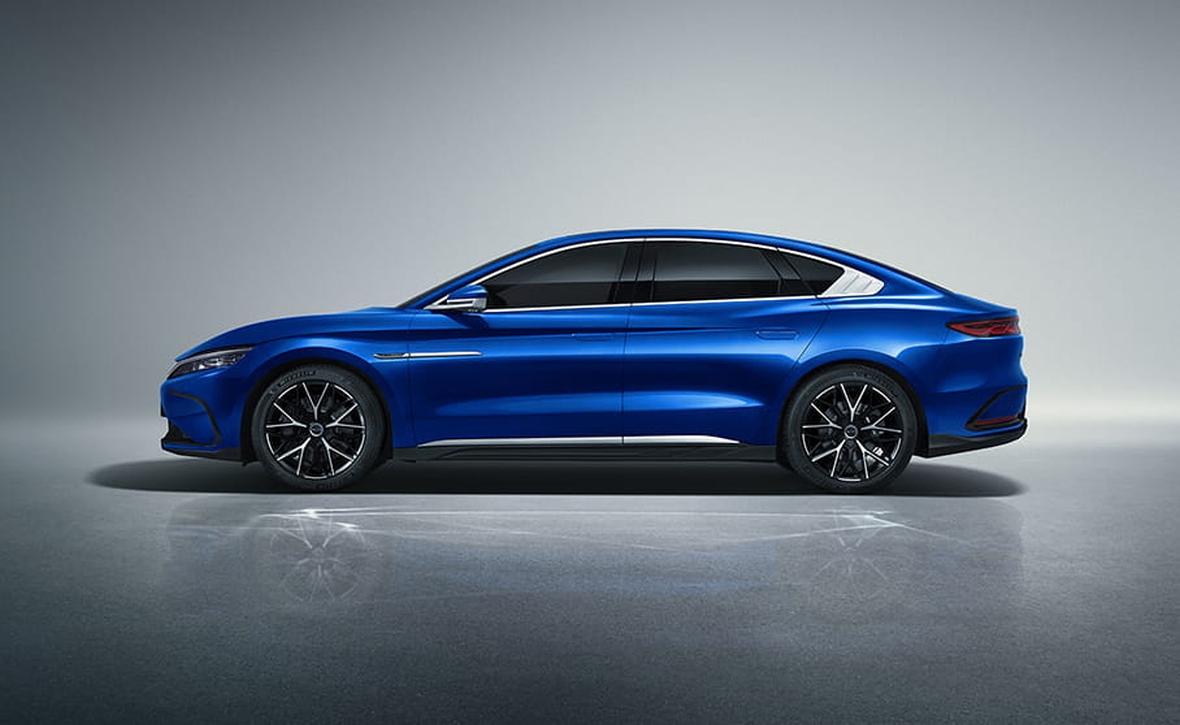
BYD Model Han
(Mit freundlicher Genehmigung/Courtesy of BYD Europe B.V. [Homepage])
Management Summary
Elon Musk’s success with Tesla has triggered a tsunami wave of BEV startups. A host of new companies have been launched around the world by ambitious entrepreneurs, in many cases in direct response to Tesla’s success.
Remarkably, China has overtaken the US – the motherland of start-up culture – in the BEV start-up sector. The most successful companies with more than 120,000 vehicles sold in 2022 include BYD, Hozon, Li Auto, NIO and Xpeng.
BYD and Li Auto continued their strong growth in 2023, and both companies stand out for their solitary technology strategy.
BYD is the only company in the world with complete control of the battery value chain: the company develops and produces the cell, pack and battery in-house. Of course, this also puts BYD in competition with cell manufacturers such as CATL, which can potentially produce cells and batteries at lower cost through higher volumes.
Li Auto has so far only produced models with range extenders and has thus been surprisingly successful in the Chinese domestic market. However, these vehicles are less suitable for export. However, Li Auto has already announced its intention to develop BEV models in the future.
Hozon Auto has so far focused on an Asian growth strategy, with production plants planned in Thailand, among other places. In the medium term, the company also plans to export to Europe.
NIO and Xpeng have already started exporting to Europe.
In July 2023, the news about a strategic cooperation between VW and Xpeng caused a sensation, which also includes a financial participation of VW in Xpeng with almost 5%. On the technological basis of the Xpeng G9, 2 BEV vehicles are to be developed.
There are also many BEV start-ups in the USA, but apart from Tesla, they have not been nearly as successful as the Chinese start-ups. None of the U.S. companies even comes close to the number of vehicles delivered in 2022 by BYD and Co.
Rivan was able to sell 25,000 models in 2022 and with its R1T model occupies the light truck segment, which is so important in the USA. With Amazon, Rivian has a financially strong investor and customer for its delivery vehicles.
Lucid produced just under 7200 vehicles in 2022 and also has a powerful partner on its side in the Saudi Arabian sovereign wealth fund.
For both companies, growth in the coming years is essential for survival in order to reach the profit zone.
There are also some BEV start-ups in Europe, but with a few exceptions, we see little chance of success for them.
These exceptions definitely include the Croatian start-up Rimac Automobili, which occupies an exclusive niche with its Nivera supercars. The vehicle is also a technology demonstrator, representing the extremely high level of expertise of Malte Rimac and his team. In Porsche, Rimac also has a very competent and financially strong investor.
BEV start-ups from China
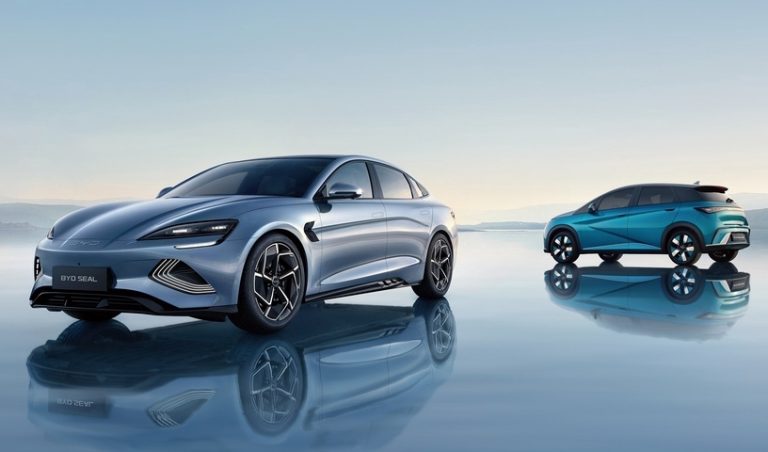
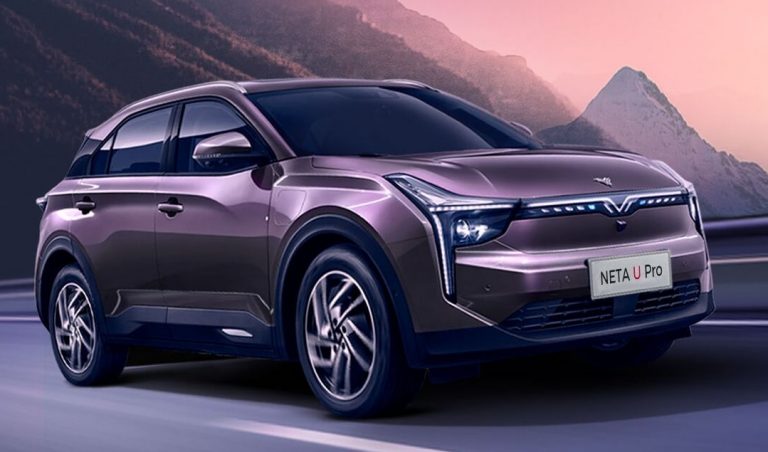
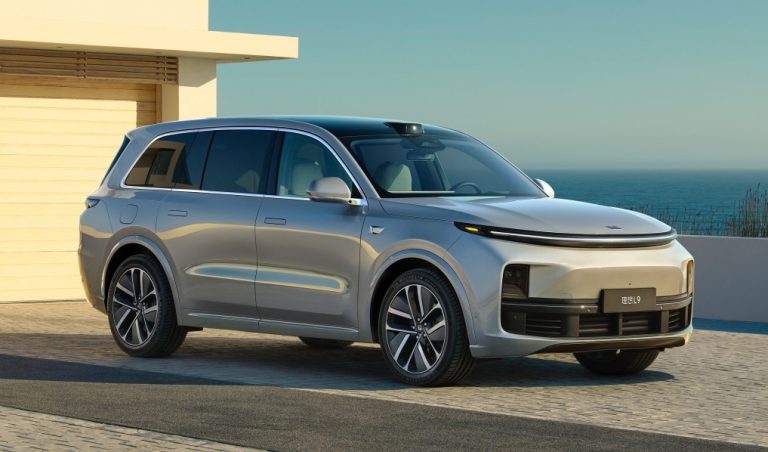
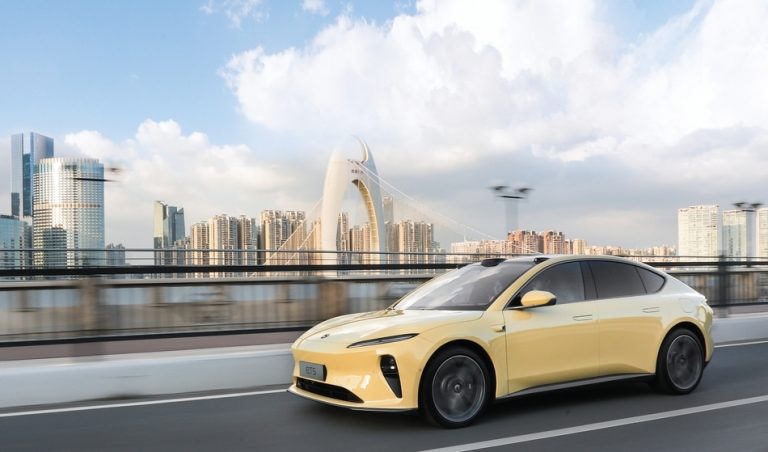
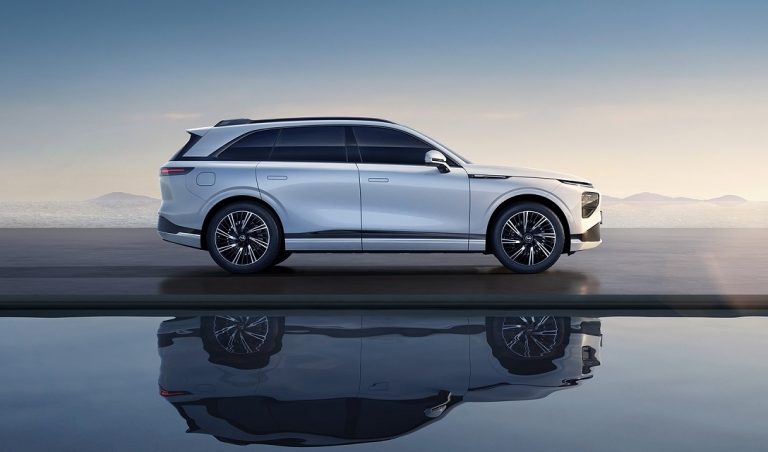
Fig. 1 – BYD Dolphin and Seal | Hozon Auto Neta U Pro | Li Auto Li I7 | NIO ET7 | Xpeng G9
(Mit freundlicher Genehmigung/Courtesy of (1) BYD Europe B.V. (2) Hozon New Energy Automobile Co.,Ltd. (3) Li Auto Inc. (4) NIO Deutschlang GmbH (5) Xpeng Inc.
BYD, Hozon Auto (Neta), Li Auto, Nio und Xpeng are among the most successful startups in China, with all 5 companies selling more than 10,000 vehicles on a monthly average in 2022 (Fig. 1).
BYD was previously only known to a few Western automotive experts outside of China. At the latest since the company overtook Volkswagen, the long-time market leader in China, in Q1/2023 with around 484,500 vehicles sold, the company has been the talk of the town. Started back in 1995 as a small battery company, it has become the largest manufacturer of electric vehicles via the acquisition of a car company.
In March 2022, it ceased production of pure internal combustion vehicles, meaning BYD has since focused on pure electric vehicles (BEV) or plug-in hybrids (PHEV). BYD is currently the only automotive company that develops and produces the cells, the pack and the modules of the HV battery completely in-house.
Hozon Auto has so far only sold its models under the Neta brand in Asia and is therefore comparatively unknown in Germany. In total, Hozon Auto delivered more than 152,000 vehicles in 2022, putting the company well ahead of the start-ups NIO and Xpeng, which are much better known in this country.
Technologically, Hozon Auto is closely linked to CATL, and the cell supplier has also held a financial stake in the company since 2021. In March 2023, Hozon Auto announced plans to build a production plant in Bangkok, Thailand; this would be the first plant outside of China. Further plants in the Middle East and Europe are being planned.
The rapid success of Li Auto illustrates the high dynamics in the Chinese automotive industry. Founded only in 2015, the first model was already unveiled at the Shanghai Motor Show in 2019. Sales started in 2020 with ~32,000 vehicles and quadrupled to ~132,000 vehicles sold within 2 years. In Q1/2023, Li Auto overtook the two better-known startups NIO and XPeng with ~52,500 units.
What is interesting here is that Li Auto has so far exclusively produced so-called range extender models, i.e. the vehicles have an internal combustion engine on board that is used as a power generator when the battery is empty. Unlike a plug-in hybrid, there is no mechanical pass-through from the combustion engine to the drive wheels.
At the Shanghai Motor Show 2023, Li Auto announced that 5 new BEV models will be launched by 2025, thus Li Auto is leaving the previous range extender-only strategy.
NIO has been one of the more prominent Chinese start-ups since the launch of European sales in 2022, with target markets initially being Denmark, Germany, the Netherlands, Norway, and Sweden. The charismatic founder William Li has the status of a pop star in China, at trade fairs he is regularly asked for selfies and autographs. Launched in 2014, NIO already sold ~122,000 vehicles in 2022.
Among its special features is the battery swap concept, which gives NIO a unique selling point. Empty batteries can be replaced with full ones at exchange stations, and the exchange works fully automatically in just 5 minutes. There are already more than 1100 swap stations in China, where up to 30,000 exchanges are carried out every day. Swap stations are also to be set up in Germany in cooperation with EnBW.
The Xpeng founder’s resume bears strong similarities to Elon Musk’s: with the sale of his highly successful Internet start-up UCWeb to Alibaba, He Xiaopeng became a self-made millionaire. He was among the first customers in China to be delivered a Tesla Model S. This vehicle made such a lasting impression on him that he decided to go into car manufacturing himself in 2014.
In 2022, Xpeng sold ~120,750 vehicles, and in 2023, it plans to start sales in Europe as well, initially in Denmark, Norway, the Netherlands and Sweden.
The news of a strategic cooperation between VW and Xpeng, which also includes a financial participation of VW in Xpeng with almost 5%, caused surprise. On the technological basis of the Xpeng G9, 2 BEV vehicles are to be developed.
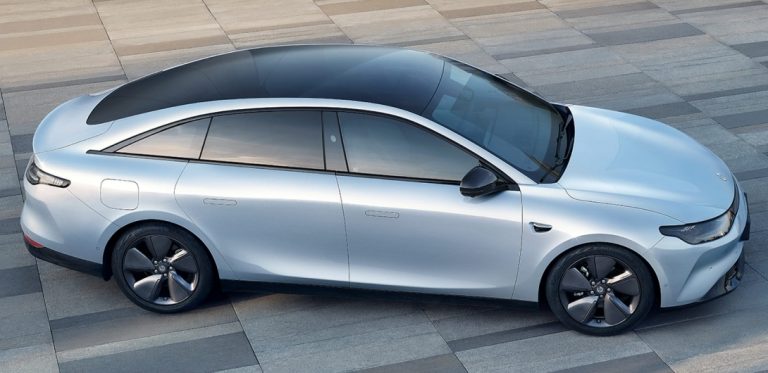
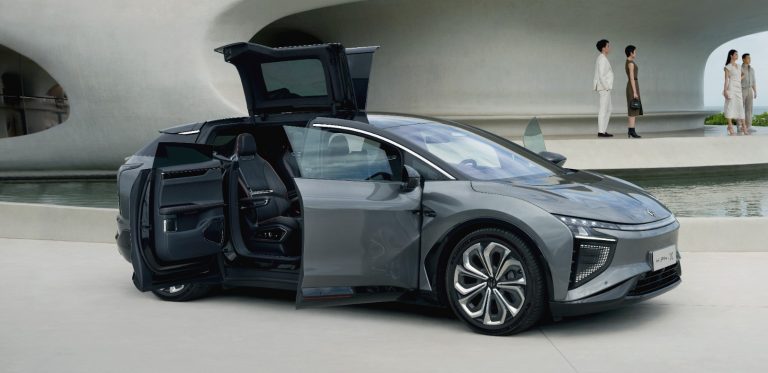
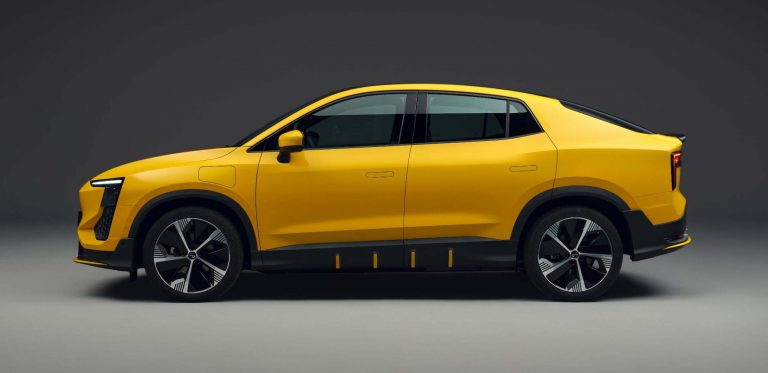
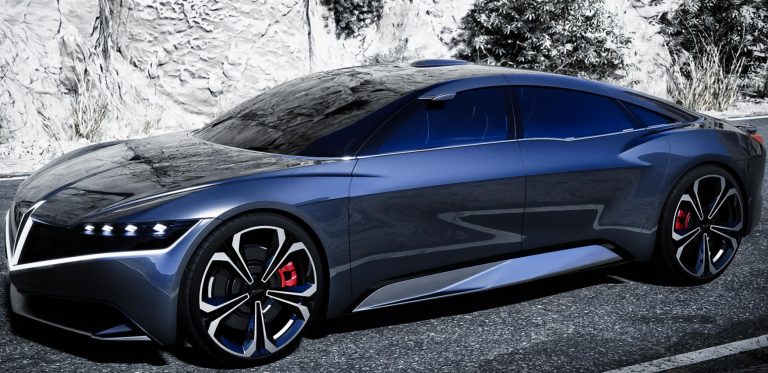
Fig. 2 – Leapmotor C01 | Human Horizons HiPhi X | AI-WAYS U6 | BeyonCa GT Opus 1
(Mit freundlicher Genehmigung/Courtesy of (1) Zhejiang Leapmotor Technology Co., Ltd. (2) Human Horizons (Shanghai) Connectivity Technology Co., Ltd. (3) Aiways Automobile Europe GmbH (4) BeyonCa Information Technology Co., Ltd.)
Leapmotor, Human Horizons, and AI-WAYS remained below the threshold of 120,000 vehicles sold in 2022, and BevonCa will not start production until 2024 (Fig 2).
Leapmotor was founded in 2015, attention was attracted in 2018 by the announcement of the deployment of the first AI chip developed in China. This was developed specifically for autonomous driving and similar deep-learning-based assistance systems. By 2022, the company was already selling ~111,000 vehicles.
Leapmotor claims to be the first manufacturer to implement the so-called cell-to-chassis concept in the C01 model. Here, the cells are no longer packed into a separate battery housing, but the battery itself becomes part of the body. The T03 small car is now also sold in France.
In July 2023, it became known that Leapmotor is presumably negotiating with Volkswagen about licensing its BEV platform. VW would like to use the Leapmotor technology for the Chinese sub-brand Jetta in the future.
Human Horizons was only launched in 2017; its founder is the former GM China manager Ding Lei. With its models, which are sold under the brand name Hiphi, the company clearly addresses the premium segment.
The HiPhi X model clearly borrows from Tesla’s model of the same name, including the rear gullwing doors. The Hiphi Z is a four-door GT sedan with a 120 kWh battery, and the AI software for the assistance systems is being developed together with Microsoft. Registration in Europe is planned for both models, and TüV Süd has been commissioned with homogolation.
AI-WAYS was also only founded in 2017, and sales in Germany started as early as 2020. Sales in Germany take place via the AI-WAYS website (direct sales) and via the electronics retailer Euronics. The sales concept does not seem very successful, at least in Germany; only ~1200 vehicles were delivered by June 2022.
BeyonCa did not start until 2022; its founder is former Renault China CEO Soh Weiming. Company locations include a headquarters in Beijing, a design center in Munich, and an artificial intelligence development site in Singapore. The first product is a premium sedan called GT Opus 1 with 800 V operating voltage and a 130 kWh HV battery; in terms of gap dimensions, the company intends to follow the lead of German premium manufacturers, which it has also identified as its main competitors. Series production and sales are scheduled to start in 2024.
BEV start-ups from the USA


Fig. 3 – R1T from Rivian | Endurance from Lordstown Motors
(Mit freundlicher Genehmigung/Courtesy of (1) Rivian Automotive, Inc. (2) Lordstown Motors Corp
In the USA, the BEV start-ups – measured in terms of vehicles delivered in 2022 – have so far not been as successful as their competitors in China, with the exception of Tesla.
It is also interesting that Rivian Automotive is currently the only start-up left in the light trucks market segment, which is so important for the US market, after the second start-up in this segment – Lordstown Motors – filed for bankruptcy in June 2023.
An opportunity for newcomers still exists here, as production of the Tesla Cybertruck continues to be delayed and, with its extreme design, it is unlikely to appeal to the tastes of the average American.
However, this window will close as soon as established companies like Ford and GM manage to gain a foothold here. Ford seems to be succeeding with the F150 Lightning, but production cannot keep up with the enormous demand.
Rivian Automotive wurde bereits 2009 gegründet, durch das Investment von Amazon wurde die Firma einem breiteren Publikum bekannt. Zur Produktpalette gehören der Light Truck R1T, das SUV R1S sowie ein Transporter, der speziell für Amazon entwickelt wurde. Alle 3 Modelle basieren auf der gleichen Antriebsplattform, die verschiedene Antriebskonfigurationen ermöglicht. Im Maximalausbau wird jedes Rad von einem eigenen, radnahen E-Motor angetrieben.
2022 hat das Unternehmen knapp 25.000 Fahrzeuge in den USA verkauft. Der R1T hat 2022 in der Kategorie der Premium Battery Electric Vehicles den J.D. Power Preis für „for (the) most satisfying ownership experience“ gewonnen.
Lordstown Motors was founded in 2018, in June 2023 Lordstown Motors filed for bankruptcy and creditor protection.
The first and only model is a typical American light truck called Endurance with 5.8 m length. The special feature of the vehicle is that all 4 wheels are driven by a so-called wheel hub motor, i.e. the motor sits in the wheel hub in the tire.
A wheel hub motor is not to be confused with a near–wheel motor, as used on the Rivian R1T, for example. A near-wheel motor is mounted on the chassis, and the wheel is driven by a shaft, so the motor is not part of the unsprung masses.
On the Enduarance, the motor sits in the wheel and is part of the unsprung masses. These are about twice as high on the Endurance as on a comparable vehicle because of the weight of the electric motor. Lordstown founder and CEO Steve Burn has explicitly confirmed that the high weight has complicated the development of the spring-damper system.
The supplier of the wheel hub motor is the Slovakian company Elaphe.
After a production run of 31 vehicles, production was interrupted in February 2023 due to quality problems; a well-known German car magazine already questioned the future of Lordstown Motors at this point.
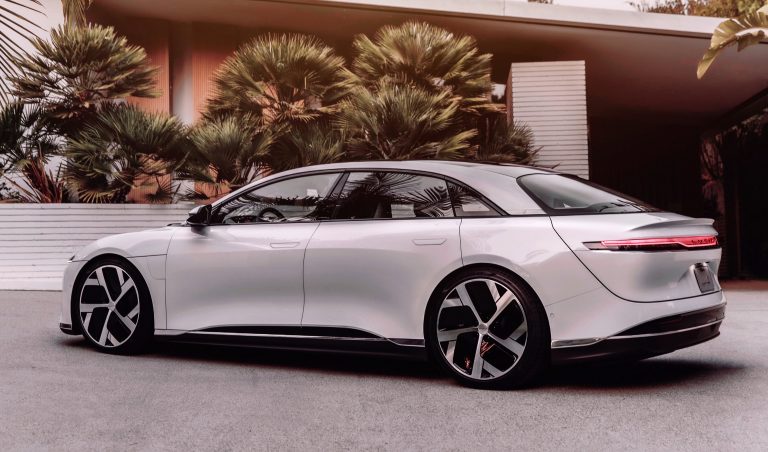
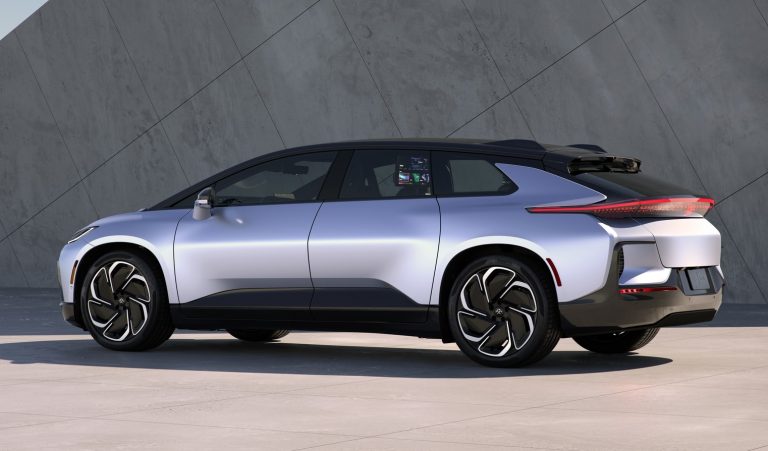
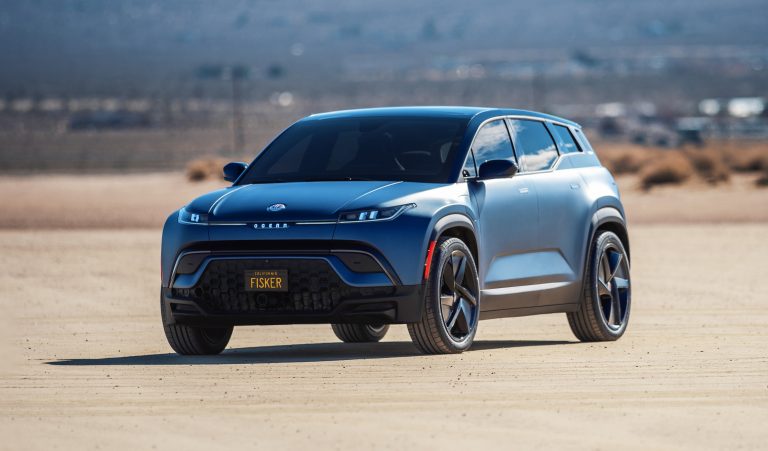
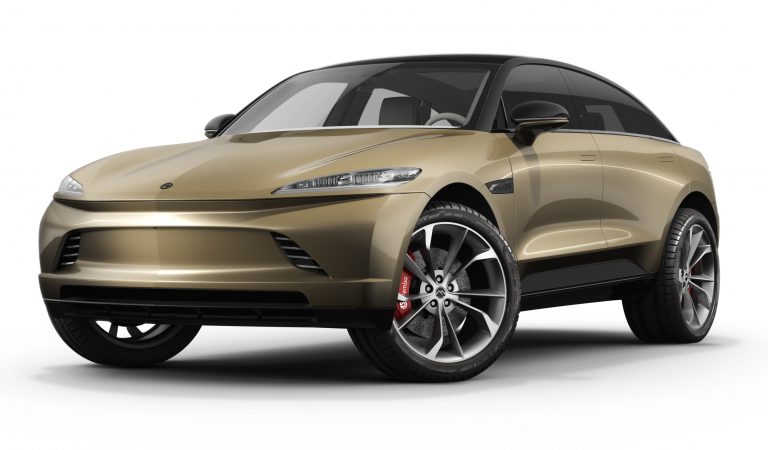
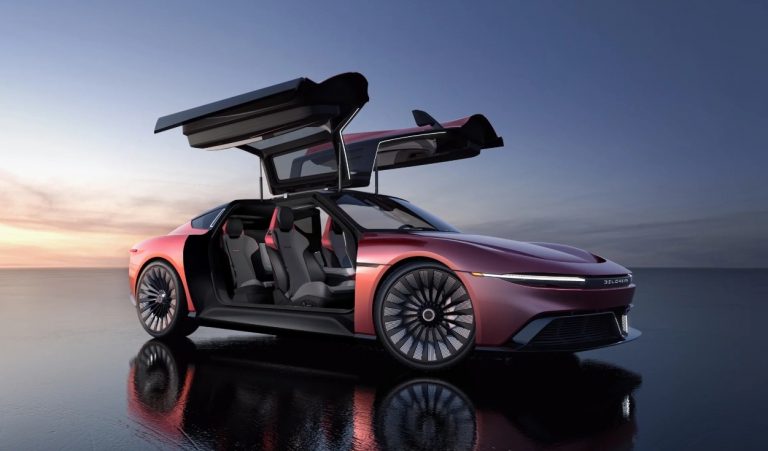
Fig. 4 – Lucid Air | Faraday Future FF 91 | Fisker Ocean | Mullen FIVE | Deloraen Alpha5
(Mit freundlicher Genehmigung/Courtesy of (1) Lucid Group, Inc.. (2) Faraday&Future Inc. (3) Fisker, Inc.. (4) Mullen Automotive, Inc. (5) DeLorean Motors Reimagined LLC)
Lucid Motors, Faraday Future, Fisker und Mullen Technologies are developing classic sedans and SUVs, while Delorean is attempting a battery-electric revival of the gullwing classic of the same name from the Hollywood trilogy “Back to the Future” (Fig. 4).
Lucid Motors was founded back in 2007 as a supplier of components such as battery and e-motor. The arrival of Peter Rawlinson marked a change in strategy towards becoming a fully-fledged vehicle manufacturer.
Crucially involved in the development of the Tesla Model S at Tesla, Rawlinson now took the opportunity to implement the technical concepts at Lucid that Elon Musk had always denied him. These include a very large HV battery and an ultra-compact drive unit. In an equity offering in December 2022, Lucid raised $1.5 billion, with $800 million coming from Saudi Arabian investors. In total, Saudi Arabian funds hold a stake of about 62%.
Lucid Motors follows the large-car-large-profit strategy, the first model “Lucid Air” is a luxury sedan with extreme performance data such as 1111 hp, up to 883 km WLTP range and acceleration from 0 to 100 in 2.7 sec. Lucid uses a 900 V architecture, which in particular also enables fast charging; a charging time of 15 min is specified for a 400 km driving range.
In 2022, 7,180 vehicles were produced, and sales in Europe also started. Showrooms were opened in Germany, Switzerland and the Netherlands, among other countries. A premium SUV is to be developed as the next model, with technical details to be published before the end of 2023.
Faraday Future is also pursuing a premium strategy. The first model is a luxury SUV called FF91, which it says will compete with Bentley, Ferrari, Maybach and Rolls-Royce. The few known technical details include an output of 1050 hp, acceleration from 0 to 100 km/h in 2.3 s, and a range of about 600 km.
As a luxury SUV, the FF91 is also said to offer special interior comfort. For example, the rear seats can be adjusted to a so-called zero-gravity position, i.e. the position that the human body assumes in zero gravity. The start of series production has been postponed several times due to financial bottlenecks, but is now scheduled to begin in Q1/2023.
Fisker is a real stand-up guy among electric car start-ups. Founded in 2007 by former BMW designer Hendrik Fisker, production had to be halted in 2012 due to the insolvency of cell supplier A123.
In 2016, a re-foundation took place, the first model is an SUV called Ocean, manufactured by contract manufacturer Magna. Production was started in November 2022, and about 300 vehicles should be produced in the first production quarter. In total, about 42,000 units are planned for the first year of production, with an order backlog of 63,000 vehicles.
Mullen Technologies is a start-up from California that was founded in 2012. It is hard to see a consistent company strategy in Mullen Technologies’ activities. The models presented on the homepage form a hodgepodge of different vehicle categories such as sports car, light truck, truck, van and SUV.
The vehicle sources are also different: they are either to be imported into the U.S. (DragonFly sports car from Qiantu Motor), come from the development pipeline of acquired companies (commercial vehicles in the U.S. vehicle categories Class 3 and 4 from Bollinger) or are in-house developments (Mullen FIFE sports SUV). In addition, Mullen is also working on innovative battery technologies such as lithium-sulfur cells and solid-state batteries, according to its own website.
Delorean is a passenger car manufacturer with cult status, as the only internal combustion model with gullwing doors produced only between 1981 and 1982 played a leading role in the Hollywood trilogy “Back to the Future”. In business terms, the company was a flop; demand collapsed relatively quickly after massive quality problems.
Now a new edition of a Delorean is planned as a BEV model, it will be called ALPHA5 and will also feature the iconic gullwing doors again. Nothing is yet known about further technical details. It remains to be seen whether this company’s second attempt will be more successful.
BEV start-ups from Europa
In Europe, the start-up culture is nowhere near as pronounced as in the U.S. or China, yet there are some BEV start-ups here as well.


Fig. 5 – Supercar Rimac Nivera | Sketch Aehra SUV Model
(Mit freundlicher Genehmigung/Courtesy of (1) Rimac Automobili d.o.o. (2) AEHRA Inc.)
the companies Rimac Autombili and Aehra are clearly positioning themselves in the luxury segment (Fig. 5).
Rimac Automobili was founded by Croatian “wunderkind” Mate Rimac in a hobby workshop. The company develops and produces powertrain components such as battery systems to order. At the same time, Rimac builds battery-electric supercars in small series under its own brand. Porsche AG holds a 24% stake in the company.
Aehra is an Italian BEV startup that says it wants to combine Italian design, world-class engineering and American customer service. The first model is a premium SUV coupe, the interior resembles the Mercedes EQS with its full-display cockpit and the Yoke steering wheel resembles Tesla’s Model S Plaid, with production planned for 2025.


Fig. 6 – Liux Prototyp Animal | Sketch SUV Modell ARES from Olymp Cars
(Mit freundlicher Genehmigung/Courtesy of (1) NATURAL MOVEMENT, S.L. (2) OLYMP – Cars)
The start-ups Liux and Olymp Cars are both developing SUVs (Fig. 6).
Liux was founded in Spain in 2021, the choice of name does not seem very fortunate from our point of view, as it is close to a very popular operating system, which makes searching on the Internet much more difficult. Investors include the leasing provider OK Mobility and the Spanish Ministry of Industry, and further rounds of financing are required to implement series production.
The first prototype presented was the Animal model, a crossover between an SUV and station wagon. The absence of the B-pillar and the rear doors that are hinged against the direction of travel is interesting, but it remains to be seen whether this design will also be found in the production vehicle. Liux emphasizes that many of the Animal’s components are to be made from renewable natural resins and fibers. The number of components is to be reduced by 25% compared to comparative vehicles.
In the meantime, Liux seems to be focusing on a 2-seater city vehicle called Gecko, which externally resembles the 1st generation Smart.
Olymp Cars is a BEV start-up from Austria founded as a joint project of the companies abo-drive and Modern Mobility GmbH, both of which come from the fleet management sector.
The first model presented is a mid-size SUV called ARES with a length of 4.80 m and a planned range of 600 km. Further passenger car models are planned on the same platform, and in addition a VAN called Hermes is also to be developed. The presentation of the first vehicle prototypes has been announced for spring 2023. The vehicles are to be produced by contract manufacturers, with the battery cells sourced from Chinese suppliers.

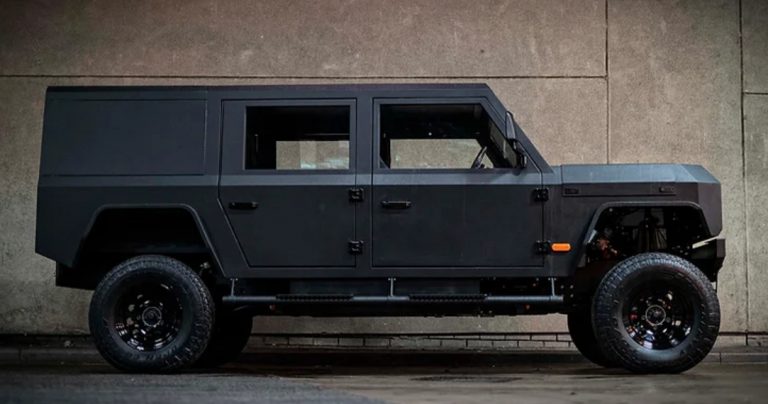
Fig. 7 – Ineos Grenadier (Combustion model) | Munro Vehicles – MK1
(Mit freundlicher Genehmigung/Courtesy of (1) INEOS Capital Limited (2) ALL TERRAIN ALL ELECTRIC LTD)
The companies Ineos Automotive and Munro Vehicles were both founded in the UK and develop Land Rover-style off-road vehicles (Fig. 7).
Ineos Automotive was founded in England in 2016 by Jim Ratcliffe, founder and chairman of the English chemical company Ineos, in response to the discontinuation of production of the Land Rover Defender. Together with Magna, Ineo developed a rugged internal combustion off-roader called Grenadier, which has been in production at the former Smart plant in Hambach, France, since 2022. Many of the Grenadier’s components, such as the engines, come from BMW.
In cooperation with Magna, the development of a battery-electric SUV is now planned, which will also be produced at Magna in Graz from 2026.
Munro Vehicles is a Scottish electric off-road vehicle start-up founded in 2021. Using the chassis of an existing vehicle model – presumably a Land Rover Defender – Munro has developed an all-wheel-drive prototype designed for tough off-road use. This vehicle is now to be produced in a small series. The base price for the MK_1 is £49,000, with the first deliveries scheduled for 2024.
